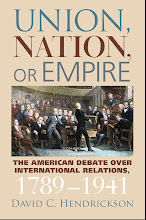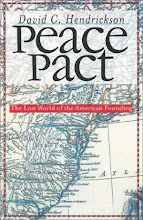Martin Wolf of the Financial Times writes:
"These linked dangers between external and internal imbalances, domestic debt accumulations and financial fragility were foretold by a number of analysts. Foremost among them was Wynne Godley of Cambridge university in his prescient work for the Levy Economics Institute of Bard College, which has laid particular stress on the work of the late Hyman Minsky."
Brad DeLong has a different take:
“We—all of us from Nouriel Roubini to Lawrence Summers to John Taylor to Tim Geithner (except perhaps Ben Bernanke, who really did seem to believe in a long-run global savings glut)—were expecting a very different financial crisis. We were expecting the Balance of Financial Terror between Asia and America to collapse and produce chaos. We were expecting a free fall in the dollar’s value that would push and be pushed by large-scale capital flight from America that would produce high interest rates and a collapse of construction and investment. We were expecting a collapse of imports into the United States that would produce a free fall in employment and in political stability in Asia. We expected the Federal Reserve and the U.S. Treasury to be powerless—for we expected the safe asset that banks and investors would scramble for in the chaos to be anything but U.S. Treasuries and reserve deposits at the Fed. And for the avoidance of a catastrophic balancing-down of the world economy we expected the United States to have to depend on the kindness of, well, not strangers exactly but of a disorganized congerie of national Treasuries and central banks that were unused to a world without a Kindlebergian hegemon.
We are not having that financial crisis. And it looks like we will not have that financial crisis: if the past year’s financial chaos in New York has not provoked a run on the dollar, it is hard to envision a scenario that would. Instead we are having a very different financial crisis: catastrophic failures of risk management throughout the entire banking sector have caused a relatively minor—by the standards of the global economy—collapse in housing prices in Riverside County, CA, Dade County, FL, and a few other places to freeze up global finance to a degree that has not been seen since the Great Depression. The first good thing about this situation is that it does not call for different central banks and Treasuries to do different things, but rather for them all to do the same thing in unison without fouling each other’s oars.”
I see a couple of problems with DeLong's analysis. One point is simply that those expectations may yet prove to be true. It isn't over. The sharp rally of the dollar in the fall of 2008 was against the background of its previous sharp decline and reflected an "artificial dollar shortage."
Not to be picky, but it's also misleading to pair "catastrophic failures of risk management throughout the entire banking sector," which undoubtedly existed, with a "relatively minor—by the standards of the global economy—collapse in housing prices in Riverside County, CA, Dade County, FL, and a few other places." The US housing mania was just the tip of a vast iceberg of debt.
The unbalanced US debt/World equity ratio must put continued pressure on the dollar or bonds, and probably both. We are getting high interest rates on everything except Treasuries (an anomaly primarily to be understood as a reflection of panic into anything that doesn’t fluctuate by ten percent daily); we will almost certainly get a steep fall in domestic construction and investment. The resentment caused by the way in which dollar dependency has inflicted pain and suffering on others, even though the crisis originated in the United States, is a profound long term negative for the dollar's status as a reserve currency.
The collapse of the American credit bubble will just as clearly lead to a crisis in Asian economies. The massive consumption fed by easy credit in the United States, with McMansions springing up in a distant wilderness accessible only by Hummers, is just the obverse of tens of thousands of Chinese factories geared to the western market. The deflation of the credit bubble here means bankruptcies and weakness there, a prospect that Asian bourses are clearly anticipating.
So I would say that we are getting that financial crisis, though via a route and with consequences that no one exactly foresaw.
skip to main |
skip to sidebar

YOU HAVE EVERY RIGHT TO FEEL THAT WAY.
This blogbook offers, with the aid of various charts, graphs, and tables, a pictorial guide to the 2008 financial crisis.
Navigation
Table of Contents
To see the presentation in order, use either the Labels below for each chapter or the Table of Contents for individual entries.
The initial presentation was made in October 2008 and was last updated in January 2009, though I recently substantially expanded the list of sources. Lately, I have been working on a blogbook called Energy Predicament.
June 2011
To see the presentation in order, use either the Labels below for each chapter or the Table of Contents for individual entries.
The initial presentation was made in October 2008 and was last updated in January 2009, though I recently substantially expanded the list of sources. Lately, I have been working on a blogbook called Energy Predicament.
June 2011
Featured Posts
Labels
- A. Introduction (4)
- B. Financial Stress (19)
- C. Housing Bubble (11)
- D. Debt Binge (14)
- E. Derivatives Jungle (7)
- F. Scale of Losses (7)
- G. Rescues and Remedies (12)
- H. Global Imbalances (6)
- I. Lessons (9)
Top Stops in the Financial Blogosphere
-
-
-
-
-
-
-
Mr. Warsh At The Fed1 week ago
-
-
This is the End and a New Beginning4 weeks ago
-
It’s A Google Problem1 month ago
-
-
RTO Gets Serious: October 12 years ago
-
-
A Few Quick Announcements2 years ago
-
-
Links 5/7/20223 years ago
-
Thinking Outside the Grid6 years ago
-
-
The rise and fall of bitcoin8 years ago
-
The Blog Moves On8 years ago
-
Learning from Harvey8 years ago
-
Supply-Side Amnesia8 years ago
-
A Trip Through Putin Country8 years ago
-
Surviving America’s Political Meltdown8 years ago
-
Revenge of the Experts8 years ago
-
A Dim Outlook for Trumponomics8 years ago
-
-
-
Thursday Morning Link9 years ago
-
-
-
-
-
-
Q&A: The Fed’s Rate Cut17 years ago
-
-
-
-
-
About Me
I like charts.
I am not a dismal scientist.
My name is David Hendrickson. I teach international relations and American foreign policy at Colorado College.
My dubious record for 2008 is reviewed here, by some miscreants.
I am not a dismal scientist.
My name is David Hendrickson. I teach international relations and American foreign policy at Colorado College.
My dubious record for 2008 is reviewed here, by some miscreants.
FEELING GLUM AND OUT OF SORTS, PERHAPS A BIT ANGRY?

YOU HAVE EVERY RIGHT TO FEEL THAT WAY.
Kudos
A good number of my charts first appeared at Contrary Investor. Though oriented toward investors, CI offers a superb analysis of the real economy and its relationship to the financial system. It is an indispensable source not only for individuals but also for any good library. So subscribe, dammit.

